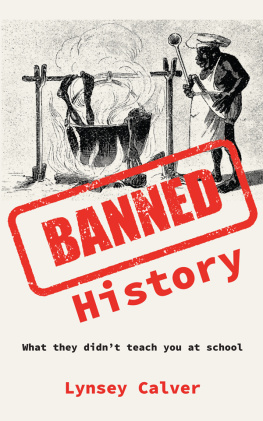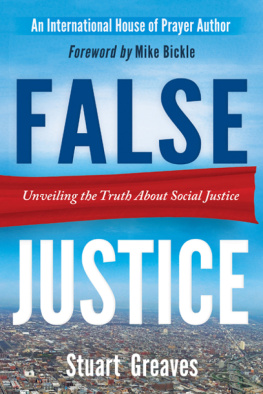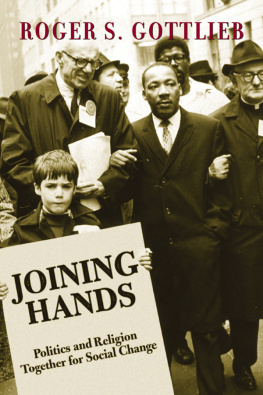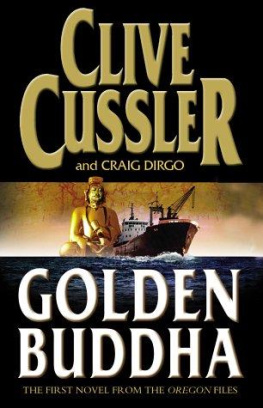Clive Calver - He Brings Us Together: Joining Hands Where Truth and Justice Meet (Foundations S.)
Here you can read online Clive Calver - He Brings Us Together: Joining Hands Where Truth and Justice Meet (Foundations S.) full text of the book (entire story) in english for free. Download pdf and epub, get meaning, cover and reviews about this ebook. year: 1987, publisher: Hodder & Stoughton Religious, genre: Religion. Description of the work, (preface) as well as reviews are available. Best literature library LitArk.com created for fans of good reading and offers a wide selection of genres:
Romance novel
Science fiction
Adventure
Detective
Science
History
Home and family
Prose
Art
Politics
Computer
Non-fiction
Religion
Business
Children
Humor
Choose a favorite category and find really read worthwhile books. Enjoy immersion in the world of imagination, feel the emotions of the characters or learn something new for yourself, make an fascinating discovery.

- Book:He Brings Us Together: Joining Hands Where Truth and Justice Meet (Foundations S.)
- Author:
- Publisher:Hodder & Stoughton Religious
- Genre:
- Year:1987
- Rating:4 / 5
- Favourites:Add to favourites
- Your mark:
- 80
- 1
- 2
- 3
- 4
- 5
He Brings Us Together: Joining Hands Where Truth and Justice Meet (Foundations S.): summary, description and annotation
We offer to read an annotation, description, summary or preface (depends on what the author of the book "He Brings Us Together: Joining Hands Where Truth and Justice Meet (Foundations S.)" wrote himself). If you haven't found the necessary information about the book — write in the comments, we will try to find it.
Clive Calver: author's other books
Who wrote He Brings Us Together: Joining Hands Where Truth and Justice Meet (Foundations S.)? Find out the surname, the name of the author of the book and a list of all author's works by series.
He Brings Us Together: Joining Hands Where Truth and Justice Meet (Foundations S.) — read online for free the complete book (whole text) full work
Below is the text of the book, divided by pages. System saving the place of the last page read, allows you to conveniently read the book "He Brings Us Together: Joining Hands Where Truth and Justice Meet (Foundations S.)" online for free, without having to search again every time where you left off. Put a bookmark, and you can go to the page where you finished reading at any time.
Font size:
Interval:
Bookmark:
British Library Cataloguing in Publication Data
Calver, Clive
He brings us together: joining hands where truth and justice meet. Evangelistic work I. Title
ISBN 0-340-39609-I
Copyright 1987 by Clive Calver. First printed 1987. All rights reserved. No part of this publication may be reproduced or transmitted in any form or by any means, electronic or mechanical, including photocopy, recording, or any information storage and retrieval system, without permission in writing from the publisher. Printed in Great Britain for Hodder and Stoughton Limited, Mill Road, Dunton Green, Sevenoaks, Kent by Cox & Wyman Limited, Reading, Berks. Photoset by Rowland Phototypesetting Limited, Bury St Edmunds, Suffolk. Hodder and Stoughton Editorial Office: 47 Bedford Square, London WC1B 3DP.
The vast ballroom was packed with people. Each had come with a different expectation yet everyone knew that this was a time for celebration. To meet with God, to listen to his Word and sing his praises.
On the distant stage a strong Welsh voice asked a basic question. 'How many of you here are committed Christians? You love Jesus and seek to live in relationship with him under the direction and authority of the Bible?'
Almost every hand was raised in response, each wanting to affirm his or her Christian position. But then came another question.
'How many of you would admit to being an evangelical?'
Consternation and confusion reigned. Many were unsure what the question meant, and were uncertain as to what their response should be. The word was not unfamiliar, but its precise meaning was unclear. Some hands shot up in clear recognition of what they believed. Many wavered until about one in three had their hands in the air. Two out of three did not respond.
'But an evangelical is a person who has committed his or her life to Jesus Christ, seeking to live under his Lordship and authority, believing and accepting the Bible for what it says.'
A murmur spread through the hall. Relief, as uncertainty could be abandoned. Shame at initial ignorance. Surprise that the answer should be so simple and straightforward.
The problem lies in the fact that words go out of fashion. At the same time the truths for which they stand may remain intensely relevant. The word 'evangelical' has come in for more than its fair share of abuse, rejection and misinterpretation.
There are many people today who freely misuse the term. It is confused with theological extremism, an anti-charismatic stance, or simply with a bigoted attitude towards others. Now, an evangelical is as capable of these attitudes as the next person, but they are not, in any sense, essential requirements for evangelicalism!
These innuendoes and pejorative attitudes have just added to the confusion and have led many of us as evangelicals to say things which we have later regretted. It has been said that 'confession is good for the soul' and I have to admit to denying my own evangelical heritage. As a young evangelist I faced a critical question from a Free Church pastor and hotly replied, Tm not an evangelical.' The phase typified a trendy assumption in the 1970s. It was designed to endear to, and not alienate from, the many non-evangelicals at the meeting. But it was also untrue.
The pastor was horrified. He could see my denying the fundamental beliefs on which evangelicalism is based. It is a deep regret to me that he died shortly afterwards and I was never able to explain that the incident nagged away at me. Was I just confused by the 'spirit of the age' towards evangelicalism? Was I rejecting truth and becoming confused by all the connotations that I understood were now loaded on to the word evangelical?
My own personal pilgrimage on this point lasted for about two years. My doctrinal position was clear throughout that period. It was words and prejudices which had undermined my position - I had to get back to the truth. I needed to think through issues which I had deemed irrelevant and again view evangelicalism in its historical perspective.
Sadly, I have come to recognise that many today are in the same quandary. We are assaulted by objections and questions which make it easier to call ourselves just 'Christians'. Any other additional descriptive term seems redundant. In fact, four major criticisms have to be faced.
1. We are told that to call ourselves 'evangelical' Christians is to exhibit 'party spirit'.
2. We are accused of inventing a new, modern word to justify our own theological position.
3. We face the charge that a new denomination is being created.
4. We are offered the choice of being 'evangelical' or 'charismatic'.
But these arguments beg the real issue. They stem from wrong presuppositions. They view evangelicalism as a structural or denominational commitment and that is not the case. Evangelicalism represents a theological commitment.
The very word 'theology' is sufficient to frighten some people into resistance. Yet it comes from two Greek nouns - theos and logos. In simpler language theology gives 'a word about God'. What makes someone an evangelical is his or her theological conviction, not their 'party', 'stream' or denomination.
An evangelical is, at root, someone who first of all holds to the traditional credal doctrinal statements of the Church. He or she believes that Jesus is in fact the Son of God. That he did perform miracles, rose from the dead and through his crucifixion offered an atoning sacrifice for the sins of all who would put their faith and trust in him. A commitment to the Trinity of Father, Son and Holy Spirit as the Godhead apart from all other faiths and beliefs, a recognition of the coming return of Jesus Christ and the fellowship of all believers as the Church of Christ are fundamental to an evangelical position.
Evangelicals are 'people of the book'. They recognise Scripture as truth, and in the words of the Lausanne Covenant, 'without error in all that it affirms'. This divinely given authoritative word from God can be totally trusted. Evangelicals may have some internal differences over the exact meaning of words like 'infallible' and 'inerrant', but have little doubt over the words 'inspired' and 'authoritative'. Indeed, where differences do exist, they are concerned primarily with the exact emphasis of what Scripture means in its context, not with what it claims for itself. For evangelicals the fact that the Bible is God's absolute Word to mankind is beyond dispute. (For a more detailed treatment of what evangelicals believe about the Bible, see Ian Barclay - He Gives His Word, a companion volume in this series.)
But evangelicals are not just distinguished by their adherence to doctrinal or biblical truth. They recognise mankind as 'fallen', polluted by sin, given over to practices which are anti-God, and alienated from God by their own actions. Satan is viewed as a personal opponent whose claims on the lives of mankind were overthrown by Christ on the Cross.
It is to Jesus Christ alone that the evangelical looks for salvation. A 'pluralist' philosophy, which claims there are several routes through different faiths to God, is whole-heartedly rejected. For the evangelical, God is not encountered through Buddha, Confucius, transcendental meditation, or any means other than Jesus - while other faiths may convey good thoughts about God and man, Jesus is the only way to know God as Father and Lord.
We may wonder about the fate of those who have never heard of Jesus, but Paul clearly affirms that conscience and creation point in that self-same direction (Rom. 1:20; 2:15).
To the evangelical the Gospel is 'good news'. Jesus has died and taken on himself in his crucifixion the penalty for the sins of mankind. To those who ask his forgiveness and receive his life in them by his Holy Spirit come the certainties of rebirth. Guilt and the past are removed. Christ establishes his rule and reign in their lives. Now they are integrated into the family of God - the Church.
Font size:
Interval:
Bookmark:
Similar books «He Brings Us Together: Joining Hands Where Truth and Justice Meet (Foundations S.)»
Look at similar books to He Brings Us Together: Joining Hands Where Truth and Justice Meet (Foundations S.). We have selected literature similar in name and meaning in the hope of providing readers with more options to find new, interesting, not yet read works.
Discussion, reviews of the book He Brings Us Together: Joining Hands Where Truth and Justice Meet (Foundations S.) and just readers' own opinions. Leave your comments, write what you think about the work, its meaning or the main characters. Specify what exactly you liked and what you didn't like, and why you think so.











